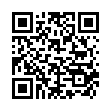|
Mathematical Modeling, Numerical Methods
Convergence in norm of collective behavior dynamics in the reflexive model of oligopoly with leaders
G. Algazin, D. Algazina
Altai State University
Abstract:
A model of oligopoly with an arbitrary number of rational agents that are reflexive according to Cournot or Stackelberg, under the conditions of incomplete information for the classical case of linear functions of costs and demand is considered. The problem of achieving equilibrium based on mathematical modeling agents' decision-making processes is investigated. Works in this direction are relevant due to the importance of understanding the processes in real markets and the convergence of theoretical models with them. In the framework of a dynamic model of reflexive collective behavior, each agent at each moment adjusts its output, making a step in the direction of output maximizing its profit under the expected choice of competitors. The permissible step value is set by the range. This article sets and solves the problem of finding the ranges of permissible steps of agents, which are formulated as conditions that guarantee the convergence of dynamics to equilibrium. The novelty of the study is determined by the use of the norm of the error transition matrix from the $t$-th to $(t+1)$-moment of time as a criterion of the dynamics convergence. It is shown that the dynamics converge if the norm is less than unity, starting at some point in time, and the failure to fulfill this criterion especially manifests itself in multidirectional choice, when some agents choose "big" steps towards their current goals, while others, on the contrary, choose "small" steps. Failure to meet the criterion also increases as the market grows. The general conditions for the ranges of convergence of dynamics for an arbitrary number of agents are established, and a method for constructing the maximum such ranges is proposed, which also constitutes the novelty of the study. The results of solving the above problems for particular cases of oligopoly, which are the most widespread in practice, are presented.
Keywords:
oligopoly, incomplete awareness, collective behavior, reflexion, matrix norm, process errors, convergence ranges.
Received: 22.01.2023
Citation:
G. Algazin, D. Algazina, “Convergence in norm of collective behavior dynamics in the reflexive model of oligopoly with leaders”, Informatics and Automation, 22:3 (2023), 616–646
Linking options:
https://www.mathnet.ru/eng/trspy1249 https://www.mathnet.ru/eng/trspy/v22/i3/p616
|

| Statistics & downloads: |
| Abstract page: | 50 | | Full-text PDF : | 16 |
|




 Contact us:
Contact us: Terms of Use
Terms of Use
 Registration to the website
Registration to the website Logotypes
Logotypes








 Citation in format
Citation in format 